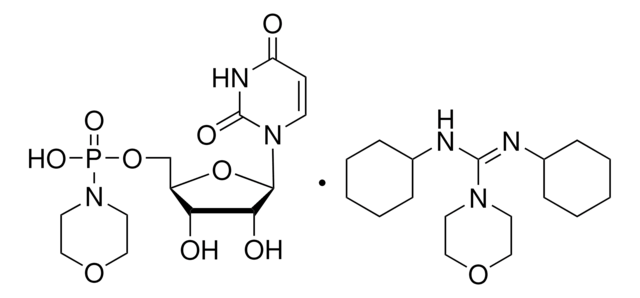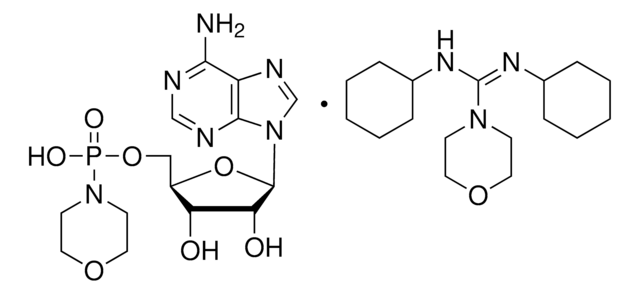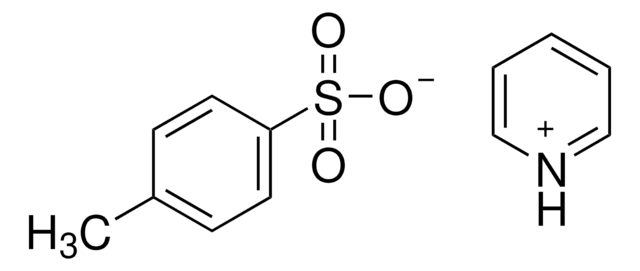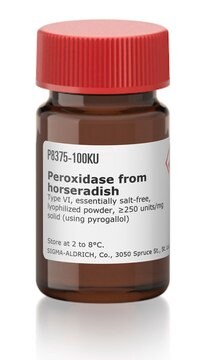G7627
Guanosine 5′-monophosphomorpholidate 4-morpholine-N,N′-dicyclohexylcarboxamidine salt
≥90%
Synonym(s):
MDCC
About This Item
Recommended Products
biological source
synthetic (organic)
Assay
≥90%
form
powder
solubility
water: 50 mg/mL, clear, colorless to light yellow
storage temp.
−20°C
SMILES string
C1CCC(CC1)N\C(=N\C2CCCCC2)N3CCOCC3.NC4=NC(=O)c5ncn([C@@H]6O[C@H](COP(O)(=O)N7CCOCC7)[C@@H](O)[C@H]6O)c5N4
InChI
1S/C17H31N3O.C14H21N6O8P/c1-3-7-15(8-4-1)18-17(20-11-13-21-14-12-20)19-16-9-5-2-6-10-16;15-14-17-11-8(12(23)18-14)16-6-20(11)13-10(22)9(21)7(28-13)5-27-29(24,25)19-1-3-26-4-2-19/h15-16H,1-14H2,(H,18,19);6-7,9-10,13,21-22H,1-5H2,(H,24,25)(H3,15,17,18,23)/t;7-,9-,10-,13-/m.1/s1
InChI key
CFNWUGDJWKRMBL-VAMAKUSHSA-N
Application
Signal Word
Warning
Hazard Statements
Precautionary Statements
Hazard Classifications
Acute Tox. 4 Oral - Eye Irrit. 2 - Skin Irrit. 2 - STOT SE 3
Target Organs
Respiratory system
Storage Class Code
6.1C - Combustible acute toxic Cat.3 / toxic compounds or compounds which causing chronic effects
WGK
WGK 3
Flash Point(F)
Not applicable
Flash Point(C)
Not applicable
Personal Protective Equipment
Certificates of Analysis (COA)
Search for Certificates of Analysis (COA) by entering the products Lot/Batch Number. Lot and Batch Numbers can be found on a product’s label following the words ‘Lot’ or ‘Batch’.
Already Own This Product?
Find documentation for the products that you have recently purchased in the Document Library.
Our team of scientists has experience in all areas of research including Life Science, Material Science, Chemical Synthesis, Chromatography, Analytical and many others.
Contact Technical Service





